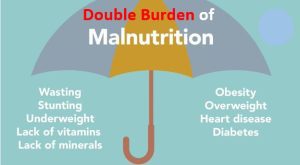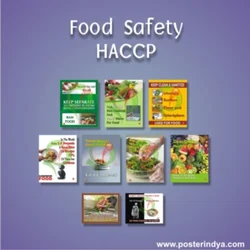Introduction
In a world abundant with resources, the paradox of food security and nutrition persists. While food production has reached unprecedented levels, millions still face hunger and malnutrition. Understanding the dynamics of food security and nutrition is not just a matter of feeding the world; it’s about nourishing its potential. In this article, we’ll explore the fundamental concepts of food security and nutrition, uncovering their critical importance for global well-being.
1. Food Security: A Foundation for Prosperity
At its core, food security is the foundation upon which prosperous societies are built. It encapsulates the idea that all individuals, at all times, have access to safe, nutritious, and sufficient food. Food security goes beyond the absence of hunger; it encompasses economic, social, and physical access to food, ensuring that no one is left behind.

2. The Four Pillars of Food Security
Food security rests on four key pillars:
- Availability: The presence of sufficient food at the global, national, and household levels.
- Accessibility: The ability to obtain food through purchase, barter, or self-production.
- Utilization: The proper utilization of food through safe preparation and adequate nutritional knowledge.
- Stability: A reliable access to food, safeguarding against shocks or disruptions like economic crises or natural disasters.
3. The Nutrition Challenge
While food security addresses access to food, nutrition delves into the quality and impact of that food. Proper nutrition is essential for human health and development. Malnutrition, whether in the form of undernutrition or overnutrition, presents a complex challenge. Undernutrition can lead to stunted growth and development, while overnutrition can result in obesity and diet-related diseases.
4. The Hidden Hunger: Micronutrient Deficiencies
Micronutrient deficiencies, often referred to as “hidden hunger,” affect millions worldwide. These deficiencies arise when individuals lack essential vitamins and minerals, even if they consume enough calories. Iron, vitamin A, iodine, and zinc deficiencies are prevalent examples. They can have devastating consequences for health, particularly for pregnant women and children.
5. The Double Burden of Malnutrition
In a perplexing paradox, many countries grapple with the double burden of malnutrition. This scenario features the coexistence of undernutrition and overnutrition within the same population, region, or household. It is a stark reminder of the complexity of nutrition challenges in an interconnected world.
6. The Global Impact
The consequences of food insecurity and malnutrition extend far beyond an individual’s well-being. They affect economic development, healthcare systems, and even national security. In a globalized world, the repercussions of food insecurity and poor nutrition know no borders, making these issues a concern for all nations.
7. Achieving Sustainable Development Goals
The United Nations has recognized the importance of food security and nutrition by including them in the Sustainable Development Goals (SDGs). SDG 2 aims to end hunger, achieve food security, improve nutrition, and promote sustainable agriculture by 2030. This goal highlights the critical role of food security and nutrition in advancing global prosperity.
8. Key Solutions
Addressing food security and nutrition challenges requires multifaceted solutions. These may include:
- Agricultural Innovation: Advancements in farming techniques and technologies to increase food production.
- Access to Markets: Ensuring that food can reach those who need it through efficient distribution and market access.
- Nutritional Education: Promoting nutrition knowledge to encourage healthier eating habits.
- Micronutrient Fortification: Adding essential vitamins and minerals to staple foods to combat micronutrient deficiencies.
- Food Assistance Programs: Providing aid to those facing acute food insecurity due to crises or disasters.
9. Grassroots Initiatives and Community Engagement
The fight for food security and improved nutrition extends from global initiatives to local community efforts. Grassroots organizations, community gardens, and educational programs play a vital role in addressing these challenges at the ground level. Empowering communities with the knowledge and resources they need is a fundamental step toward a world where everyone is well-nourished.

Conclusion
Food security and nutrition are not isolated concerns but integral components of global well-being. They are intrinsically linked to our health, development, and the prosperity of nations. In a world capable of producing abundant food, it is both a moral and pragmatic imperative to ensure that everyone has access to safe and nutritious food. To nourish the world and unlock its potential, understanding and addressing the intricacies of food security and nutrition is paramount. It is a challenge that, with concerted global efforts and local engagement, we can meet and, ultimately, conquer.











